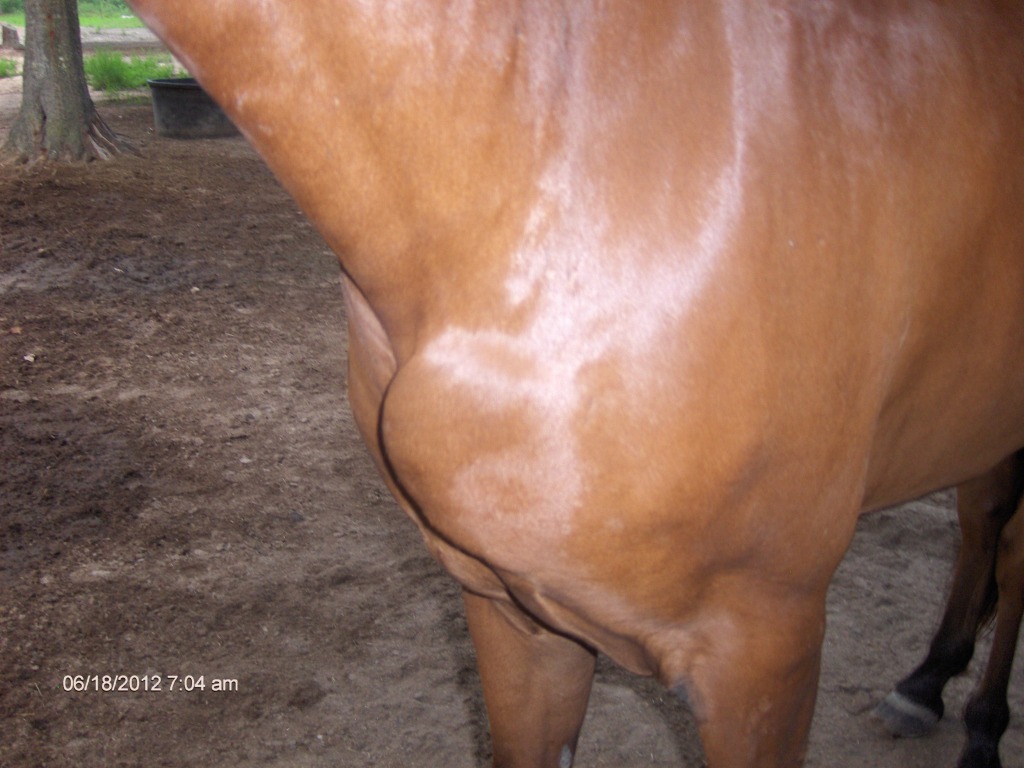Livestock owners need to be on the lookout for Pigeon Fever to appear again in livestock this year. Over 60 Florida horses, mainly in Walton and Okaloosa Counties, were infected with this disease in 2012. Pigeon Fever is an infection caused by the bacteria, Corynebacterium pseudotuberculosis that lives in the soil and is spread mainly by flies. Horses and small ruminants (goats, sheep, etc.) usually get different strains of Pigeon Fever. Cattle can get both strains. Humans can also contract Pigeon Fever, so extreme care should be taken when working with infected animals.
Insects are the normal carrier of the bacteria. Vector control is the only preventative option at this time, because there is not a vaccine for immunization against Pigeon Fever. The disease is spread via flies, such as horn flies, stable flies, and houseflies. It can also be spread by horse-to-horse contact and through contaminated soils. Applying topical fly treatment to the animals can help reduce biting insects from transferring the bacteria. The bacteria can infect the animal through skin, open wounds, or abrasions in the mucous membranes. Separating infected animals is important.
There are three forms of this disease: external abscesses, internal infection, ulcerative lymphangitis (limb infections). The most common form is external abscesses. This form causes swelling resembling a pigeon’s breast in the horse’s chest. But abscesses may form in other areas. About 8% of cases the animals will develop internal abscess. Rarely, ulcerative lymphangitis occurs causing severe lameness and swelling of limb or limbs.
The best advice is isolate infected animals and limit contact with other animals in the herd. Thoroughly disinfect all equipment and surfaces that come in contact with infected animals. Be especially careful to prevent contact from flies to animals with open wounds, and do your best to limit biting flies on all your animals.
For more information download the UF Fact Sheet: Pigeon Fever in Florida’s Horses
Or the FDACS Press Release from 2012
- Be on the Lookout for Pigeon Fever - May 17, 2013
- Managing Fireweed In Pastures - January 11, 2013
- Hay Producers Need to Scout For Horsenettles - August 31, 2012

